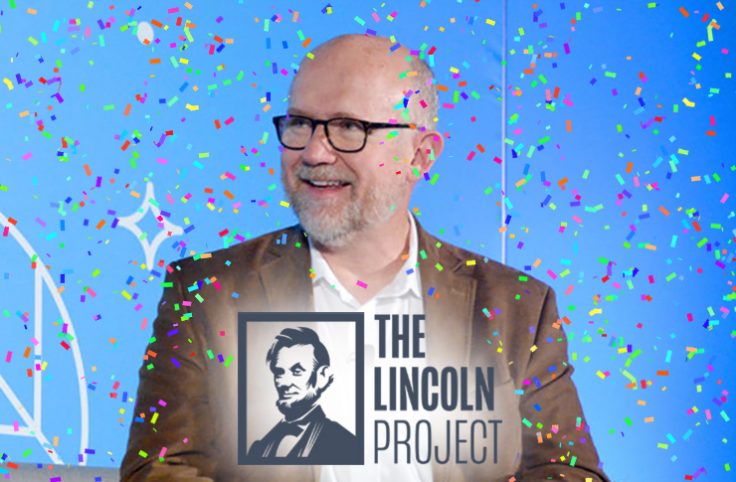
Lincoln Project founder Rick Wilson continues to shore up his shoddy personal finances after his controversial super PAC raked in millions from liberal donors during the 2020 election. On April 28, for example, court records show that Wilson was finally released from a 2014 federal tax lien against his Florida residence in the amount of $389,420.
The IRS typically releases a lien within 30 days after a delinquent taxpayer has satisfied his debts to the government. The lien on Wilson's residence in Tallahassee, Fla., was authorized in response to unpaid taxes dating back to 2004. Wilson's bank moved to foreclose on the property in 2016 when the Lincoln Project was merely a twinkle in his bespectacled eye.
The records suggest Wilson satisfied his unpaid tax bill several weeks after paying off the mortgage on his Tallahassee home 16 years ahead of schedule. Florida court records show that Wilson satisfied the terms of his $200,000 mortgage on Feb. 5, less than a week after the New York Times published a story on the multiple sex pest allegations against Lincoln Project cofounder John Weaver.
Weaver resigned from the super PAC in January after similar allegations were published online by the American Conservative and Forensic News. Records show that Weaver has an outstanding $313,655 federal tax lien on his home in Austin, Texas.
The Lincoln Project, which raised nearly $100 million from liberal donors and dark money groups in 2020, has been criticized for its dubious accounting practices, among other things. It continues to be an attractive destination for financial delinquents. Fred Wellman, who assumed the role of executive director in January, declared more than $715,000 in debts as part of a bankruptcy filing in July 2020.
In an effort to alleviate the mounting pressure to dissolve the profitable super PAC in the wake of the Weaver scandal, the Lincoln Project announced the creation of a Transition Advisory Committee tasked with "providing its full support and cooperation to the internal investigation of the Weaver matter and any systemic workplace culture issues."
The Lincoln Project also hired the law firm Paul Hastings to conduct a "comprehensive review" of the organization's "operations and culture." The review, which has yet to amount to anything, is unlikely to produce a credible result, given that several of the firm's senior partners are Lincoln Project donors.
Thus far, Lincoln Project critics who argued the Paul Hastings review was little more than an empty gesture designed to tamp down public scrutiny have been vindicated. The super PAC continues to operate as though its various scandals never happened, though it has struggled to maintain its relevance in the absence of Donald Trump.
The Lincoln Project has since rebranded itself as a "pro-democracy" super PAC, albeit one whose interests happen to align with those of the Democratic Party and other adherents to the prevailing culture of wokeness.
In May, the group established the Franklin Project, a rebranded version of Project Yellowstone, the dark money group secretly operated by Lincoln Project founder Reed Galen. Though nominally dedicated to voter education initiatives during the 2020 election, critics suspect the true purpose of Project Yellowstone was to funnel cash to Lincoln Project founders and their associates, and to shield these financial activities from public scrutiny.
The Franklin Project, which does not have to disclose its donors due to its status as a 501(c)(4) nonprofit, will seek to "unify people opposed to partisan dysfunction" in part by developing a "K-12 civics education program it will offer free to local school districts."


No comments:
Post a Comment